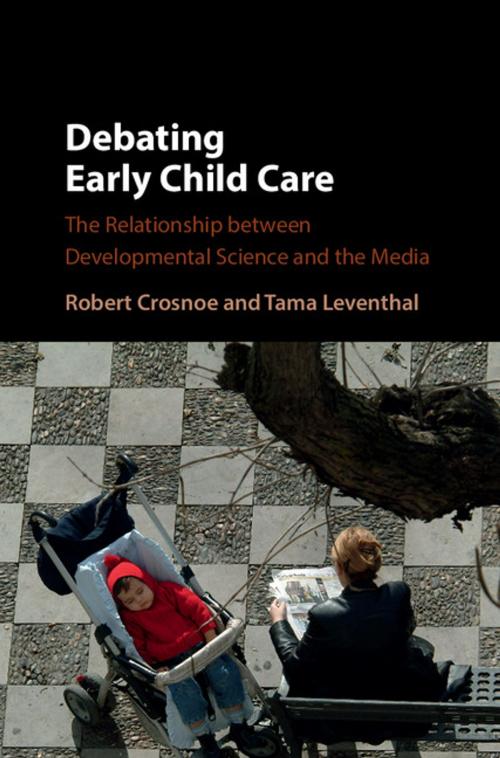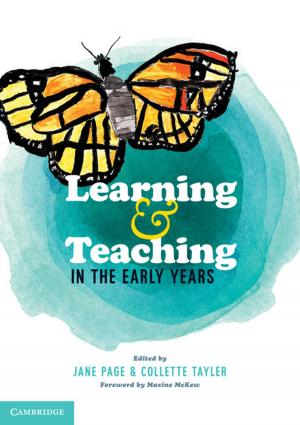Debating Early Child Care
The Relationship between Developmental Science and the Media
Nonfiction, Health & Well Being, Psychology, Developmental Psychology, Social & Cultural Studies, Social Science| Author: | Robert Crosnoe, Tama Leventhal | ISBN: | 9781316537695 |
| Publisher: | Cambridge University Press | Publication: | March 11, 2016 |
| Imprint: | Cambridge University Press | Language: | English |
| Author: | Robert Crosnoe, Tama Leventhal |
| ISBN: | 9781316537695 |
| Publisher: | Cambridge University Press |
| Publication: | March 11, 2016 |
| Imprint: | Cambridge University Press |
| Language: | English |
Throughout distressing cultural battles and disputes over child care, each side claims to have the best interests of children at heart. While developmental scientists have concrete evidence for this debate, their message is often lost or muddied by the media. To demonstrate why this problem matters, this book examines the extensive media coverage of the NICHD Study of Early Child Care and Youth Development – a long-running government-funded study that provides the most comprehensive look at the effects of early child care on American children. Analyses of newspaper articles and interviews with scientists and journalists reveal what happens to science in the public sphere and how children's issues can be used to question parents' choices. By shining light on these issues, the authors bring clarity to the enduring child care wars while providing recommendations for how scientists and the media can talk to – rather than past – each other.
Throughout distressing cultural battles and disputes over child care, each side claims to have the best interests of children at heart. While developmental scientists have concrete evidence for this debate, their message is often lost or muddied by the media. To demonstrate why this problem matters, this book examines the extensive media coverage of the NICHD Study of Early Child Care and Youth Development – a long-running government-funded study that provides the most comprehensive look at the effects of early child care on American children. Analyses of newspaper articles and interviews with scientists and journalists reveal what happens to science in the public sphere and how children's issues can be used to question parents' choices. By shining light on these issues, the authors bring clarity to the enduring child care wars while providing recommendations for how scientists and the media can talk to – rather than past – each other.















